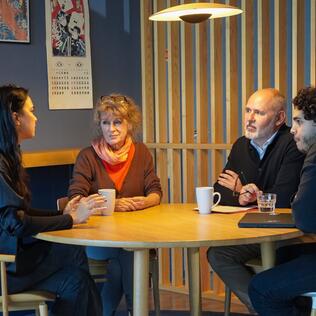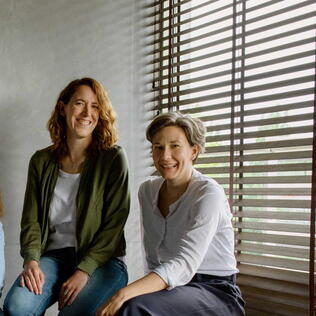Customers want free returns

In the current debate about the costs and environmental impact of returned goods, a representative survey provides clarity: the majority in Germany is against paid returns. The Otto Group, which guarantees free returns, is thus acting in agreement with its customers.
The debate about free returns in e-commerce continues unabated. There are often calls to make returns generally chargeable – in order to reduce climate-unfriendly multiple orders, for example. The Otto Group's position is clear: we believe it is the wrong step to burden customers with additional costs at this point. Instead, the Otto Group is focusing on smart solutions that can reduce the rate of returns and also the environmental impact of shipping, for example. The CEO of the Otto Group, Alexander Birken, is very clear: "Trying on textiles and other goods free of charge is part of our service. We have no plans whatsoever to put a price on returns." According to Birken, this is not just a service issue. Especially under the current conditions – inflation, uncertainty and political crisis – additional costs, additional time and organizational effort for customers are not justifiable.
Survey confirms Otto Group strategy
The Otto Group has commissioned the international market and opinion research team YouGov to conduct a survey on how customers rate free or paid returns. In July 2022, a total of 2,062 people in Germany were surveyed on a representative basis according to age (18 years and older), gender and region. The answers were very clear. Only 14 percent of consumers are generally willing to pay for returns.
Would you be willing to pay money for a return in the future?

Even if returns fees were invested in climate protection projects, only slightly more than one third of those surveyed could accept the idea of paid returns. The survey thus clearly confirms the Otto Group's view and strategy that returns should continue to be free of charge. For a group for which customer centricity is part of the brand core, there is no way around this decision.
Suppose you would have to pay the shipping costs for a return in an online store, but this money is invested in climate protection. Would you then be willing to pay for a return?

Reducing returns with smart solutions
Nevertheless, the Otto Group and its Group companies are of course actively working to reduce returns – for reasons of sustainability, but also simply because returns cost a lot of money and are thus detrimental to performance. To this end, the Otto Group relies on a variety of projects and initiatives. Garments are usually returned because they do not fit or do not meet expectations. The basic idea that guides many of the Otto Group's measures: What pleases and fits is not returned. Bonprix, for example, is intensively involved in 3D product development. This means that new garments are digitally developed to such an extent that the data goes directly into production. This improves the fit and provides customers with more comprehensive information on cut, colors and textile structure.
Overall, the Otto Group's goal is to provide customers with even more information about the products so that they can make well informed purchasing decisions and select the product that is right for them. This ranges from detailed product images that can be viewed from all sides, to personalized size finders, a smart selection of reviews from other customers, and personal consultations in live shopping events. And if products in different sizes do end up in the shopping cart, a friendly message appears before checkout. This gives customers the opportunity to pause before making a purchase and decide whether they really want to place multiple orders of the same item.
With all these measures, the Otto Group is able to keep the number of returns low – and intends to reduce them even further in the future. It will never be possible to avoid them completely. This is one of the reasons why the Otto Group is working to increasingly transport shipments without emissions. As a parcel service provider, Hermes Germany is driving sustainable city logistics forward and continuing to expand its emission-free fleet.
In hybrid commerce, returns could become even more customer-friendly
The survey commissioned by the Otto Group was also very revealing in the case of unavoidable returns. The clear majority of respondents, 63 percent, said they would prefer to return goods to a store free of charge instead of paying the shipping costs of a return. Only 14 percent would prefer the return with costs, even if they could choose between the two options.
You can send back a return for a fee or drop it off at a retail store free of charge. Which option would you prefer?

This result clearly points to the retail of the future and shows the possibilities for further customer-oriented services: a smarter interweaving of e-commerce and stationary stores, which is also part of the Otto Group's strategy.





